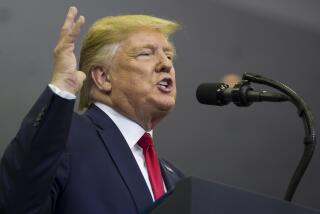Romney’s opportunism
In reacting to the killing of the U.S. ambassador to Libya and three other Americans, President Obama, Secretary of State Hillary Rodham Clinton and some Republican members of Congress appropriately focused on mourning the dead and honoring their patriotism. Mitt Romney thinks he has a better idea: capitalizing on the attack to shore up his dubious campaign narrative that Obama is soft on radical Islam and apologetic about American values. It’s an outrageous exercise in opportunism.
Ambassador J. Christopher Stevens and the other Americans were killed Tuesday when a mob sacked the U.S. consulate in the city of Benghazi. Like a protest earlier in the day at the U.S. Embassy in Cairo, the storming of the consulate reflected outrage over a film insulting the prophet Muhammad (though U.S. officials reportedly are considering the possibility that the attack was long-planned).
On Tuesday evening, after protesters at the embassy in Cairo had scaled the mission’s outer walls and torn down an American flag, and it was reported that at least one American had died in Benghazi, Romney’s campaign emailed this statement to reporters: “I’m outraged by the attacks on American diplomatic missions in Libya and Egypt and by the death of an American consulate worker in Benghazi. It’s disgraceful that the Obama administration’s first response was not to condemn attacks on our diplomatic missions but to sympathize with those who waged the attacks.”
PHOTOS: U.S. ambassador killed in Libya
How exactly had the administration sympathized with the attackers? Early Tuesday — before Egyptian protesters had massed outside — the Cairo embassy staff had released a statement addressing the controversy over “Innocence of Muslims,” the film reportedly produced by a California resident with a trailer posted on YouTube. Among other insults, the movie claimed that Muhammad approved of child molestation. The embassy’s online statement said that it “condemns the continuing efforts by misguided individuals to hurt the religious feelings of Muslims.”
Perhaps that statement, which criticized abuse of the “universal right of free speech,” should have emphasized that in the U.S. the 1st Amendment protects hateful speech directed at the religion of others. But its condemnation of religious intolerance was appropriate. Former President George W. Bush expressed similar sentiments in 2006 when Muslims around the world were angered by the publication of cartoons depicting Muhammad. And it was absurd for Romney to suggest that the embassy statement was the administration’s “first response” to the Benghazi violence given that the attack hadn’t even occurred yet.
On Wednesday, an unchastened Romney reiterated his indictment of the administration, coupling his condolences for the slain Americans with the observation that Tuesday’s events showed that “American leadership is still sorely needed” — leadership he is eager to provide. In mixing sympathy with specious attacks and self-promotion, Romney has diminished himself.
More to Read
A cure for the common opinion
Get thought-provoking perspectives with our weekly newsletter.
You may occasionally receive promotional content from the Los Angeles Times.










